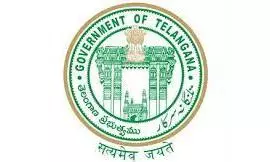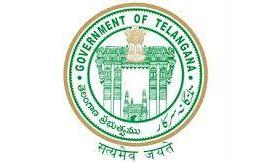
Hyderabad:Vasundhara Koppula, a person with 80 per cent locomotor disability caused by polio, was raised by a single mother. She struggled as a media professional until she decided to establish her own business. She currently runs an event management company that provides visibility to persons with disabilities(PWD).
She had applied for the marriage incentive provided by the government’s department for empowerment of PwDs, senior citizens and transgender persons. She received an incentive of `1.15 lakh.
The government has rolled out several comprehensive schemes aimed at empowering PwDs, focusing on education, livelihood, rehabilitation, and overall integration into society.
The number of registered PwDs in Telangana is 8,53,824 as mentioned on the Sadarem (Software for Assessment of Disabled for Access, Rehabilitation and Empowerment) portal. The maximum number of people are with locomotor disability (5.2 lakh) followed by those with visual impairment (more than 1 lakh).
To support education, the government provides scholarships at both the pre-matric and post-matric levels. During the FY2023-24, pre-matric
scholarships were extended to 176 students, amounting to ₹0.03 crore, while post-matric scholarships were sanctioned to 72 students, with a total expenditure of ₹0.10 crore.
In an effort to promote social integration, the government offers a marriage incentive of ₹1 lakh to couples where one partner is a person with a disability. This scheme benefited 420 couples last year, with a total disbursement of ₹4.20 crore.
Livelihood opportunities are being created through the economic rehabilitation scheme, which provides subsidies ranging from ₹50,000 to ₹5 lakh for setting up self-employment ventures. In the past year, 841 individuals were supported under this scheme.
A study conducted by Indian Institute of Public Health (IIPH), Hyderabad, highlighted that there is a greater need for governmental outreach and include persons who are self-reported as PwD. A major impact disability has on people is on their education levels, livelihoods and access to healthcare. Due to large prevalence rate, more awareness and outreach can help children and adults to make use of governmental benefits.
For Vasundhara, the process of applying to government schemes was not easy. “I had applied for the Kalyanalaxmi scheme earlier but since my mother’s domicile is from AP, I did not get the incentive. I then tried the department’s incentive but even my certificates were not from AP so I had to roam for four months from one ‘MeeSeva’ centre to the next to get it changed as I had been living in Hyderabad for 12 years and was getting married to a Hyderabadi.”
“Finally I got some help from an official and received the incentive of `1.15 lakh. The whole process took six months. Even for the entrepreneurship scheme, the amount is very less. They ask for CIBIL scores and DBR data. Knowledge about these things is very low in our community,” Vasundhara said. She also highlighted that despite paying tax returns worth `10 lakh per year, she is unable to get loans from banks, whether government or private.
To provide information and assistance, a toll-free helpline (155326) has been established exclusively for persons with disabilities. This service offers guidance on available schemes, legal assistance, and emergency support for abandoned or distressed individuals.
“For many PWD, especially women, the disability pension is not only their means of survival, but also their standing and value addition in the family and community. There are areas which require strengthening like the need for accurate estimate of number of PWD, early detection of disabilities, access to life course rehabilitation, and prevention of disability through chronic disease control,” said Dr Shailaja Tetali, dean, research & policy, Indian Institute of Public Health, Hyderabad.
She said the ongoing survey presented a good opportunity for estimating the number of PWDs and to plan evidence informed welfare services.
For shelter and education, the state operates 20 homes or hostels and five residential schools that cater specifically to the needs of PwDs.
Additionally, homes run in collaboration with NGOs, provide rehabilitation for those cured of mental illnesses but unable to reintegrate into society due to various challenges.
The government also provides access to assistive devices enhancing mobility for PwDs, including wheelchairs, crutches, hearing aids, retrofitted motorised vehicles, and smart devices, all supplied free of cost. Last year, 324 individuals received such aids and appliances, amounting to ₹0.17 crore.
For individuals preparing for competitive examinations, financial assistance is available to help them pursue government and private sector employment opportunities. The state has also established a Braille Press to produce school textbooks and other reading materials for the visually impaired, distributed free of cost.
Moreover, training and production centres manufacture and supply essential mobility aids, including tricycles and prosthetics, ensuring that PwDs have access to necessary equipment for their daily lives.
